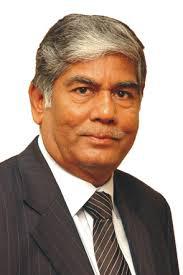- Home
- About
- Team
- About the President
- Mission
- Advisory bodies
- Associates
- Privacy Policy
- Terms and Conditions
- Cancellation, Returns & Refund Policy
- Pricing Policy
- Services
- Activities
- Events
- International Desk
- Sectors
- MSME
- Membership
- Publication
- Media
- Contact
Budget takes holistic approach to support MSMEs, startups, agri and other sectors

Comment by Dr. Vijay Kalantri, President, All India Association of Industries (AIAI) and Chairman, WTC Mumbai on Union Budget 2024-25
“I congratulate Hon’ble Finance Minister for presenting the budget for the 7th consecutive term, a rare distinction for India’s finance ministers. I welcome the budget for taking holistic approach to support MSMEs, start-ups, infrastructure, agriculture, skill development, e-commerce and tourism.
The need of the hour is capacity building in manufacturing by promoting investment through effective policy.
The government has taken steps to promote collateral-free MSME credit, relax fresh credit norms for SMA classified loan account of MSMEs and announced more SIDBI branches in MSME clusters.
I hope these initiatives, along with skilling of 4 crore youth and thrust on infrastructure and digitisation of agriculture, will support India’s economic growth.
The Hon’ble Finance Minister has articulated the roadmap to attain USD 40 trillion economy vision during the Amrit Kaal.
Specifically, I welcome the government’s move to decriminalise minor TDS offences, abolition of angel tax for all classes of investors and increasing standard deduction for salaried classes.
I commend the Hon’ble Finance Minister for balancing the twin objectives of promoting consumption, investment, while also reducing fiscal deficit to 4.9% from 5.1% estimated in the interim budget.
I look forward to effective implementation of the budget announcements at the ground level.
At the same time, the budget lacks major policy measures to support capacity building, manufacturing investment, infrastructure and could have given incentives for MSMEs to increase production capacity, invest in R&D. The government could have reduced personal income tax rates to provide relief to working class and boost consumption. Also, currently there are multiple GST slabs, which needs to be reduced to two to promote ease of doing business, reduce ambiguity and litigation.
In future, I expect the government to rationalise the GST regime by slashing rates on essential items such as cement, bringing fuel, power and real estate under GST and other measures.
The government could have also announced measures to further improve ease of doing business for MSMEs and start-ups. Today, startup founders prefer to register their companies abroad instead of in India because of complex local regulations for registration, fund raising, unfavourable tax treatment while exiting investment, restrictive FEMA guidelines for doing business with foreign clients and so on.
The government could have also announced the setting up of an official trade promotion organisation with branches in foreign countries to promote India’s exports and attract investment.
Recent Posts
- Press Release : All India Association of Industries and World Trade Center Mumbai and TERI Advance Dialogue on India’s Low-Carbon Transition 17th Feb 2026
- All India Association of Industries and World Trade Center Mumbai Welcomes Historic India–EU Trade Agreement; Calls It a Defining Moment for Global Economic Partnership 17th Feb 2026
- 77th Republic Day Celebrations at WTC Mumbai: Honoring Viksit Bharat and Ecoconomic Triumphs 17th Feb 2026
Categories
- Agriculture
- Banking and finance
- Biotechnology
- Business Process Outsourcing
- Chemicals
- Defence
- Drugs & Pharmaceuticals
- Economic Affairs & Taxation
- Energy
- Engineering
- Exports & Imports
- Food Processing
- Food Processing
- ICTE Manufacturing
- Inbound delegation
- Information & Communication Technology
- Infrastructure
- Innovation
- Logistics
- Manufacturing
- Media & Entertainment
- Medium & Small Scale Industry
- Micro
- Oil and Gas
- Petrochemicals
- Ports
- Power
- Press Information Bureau-Government of India
- Press Release
- Press Release: Quanzhou Delegation Explores Business Collaboration in India
- Renewable Energy
- Tourism & Hospitality
- Uncategorized
- Women Empowerment
Archives
- February 2026
- December 2025
- October 2025
- July 2025
- June 2025
- April 2025
- March 2025
- January 2025
- December 2024
- June 2024
- May 2024
- April 2024
- March 2024
- January 2024
- November 2023
- October 2023
- September 2023
- August 2023
- July 2023
- June 2023
- May 2023
- April 2023
- March 2023
- February 2023
- January 2023
- February 2022
- January 2022
- December 2021
- November 2021
- October 2021
- September 2021
- August 2021
- July 2021
- June 2021
- May 2021
- April 2021
- March 2021
- February 2021
- January 2021
- December 2020
- November 2020
- September 2020
- August 2020
- June 2020
- May 2020
- April 2020
- March 2020
- February 2020
- January 2020
- November 2019
- August 2019
- July 2019
- May 2019
- April 2019
- March 2019
- July 2018
- June 2018
- April 2018
- February 2018
- January 2018
- December 2017
- November 2017
- October 2017
- September 2017
- August 2017
- July 2017
- June 2017
- May 2017
- April 2017
- March 2017
- February 2017
- January 2017
- December 2016
- November 2016
- October 2016
- September 2016
- August 2016
- July 2016
- June 2016
- May 2016
- April 2016
- March 2016
- February 2016
- January 2016
- December 2015
- November 2015
- October 2015
- September 2015
- August 2015
- July 2015
- June 2015
- May 2015
- April 2015
- March 2015
- February 2015
- January 2015
- December 2014
- November 2014
- October 2014
- September 2014
- August 2014
- July 2014
- June 2014
- May 2014
- April 2014
- March 2014
- February 2014
- January 2014
